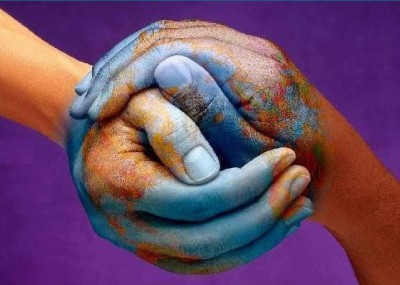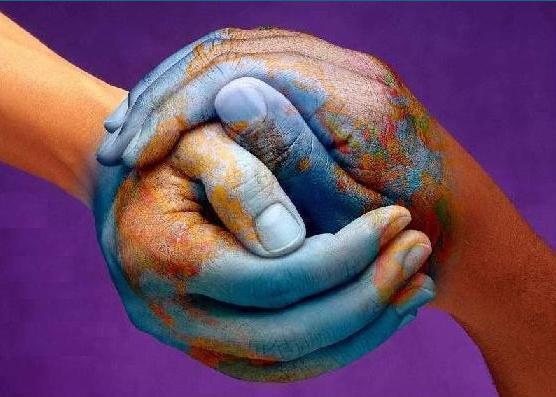This article was originally posted on jU Chicago’s blog, and can be found here.

These two translations may seem interchangeable, but I believe the latter is much truer to the spirit of service I believe in: a holistic one, a cooperative one, a one not easily split into a giver/receiver dichotomies. What is the difference between repairing and healing? Repairing is mechanical. It implies specific problems to be addressed. You repair a leaky person, while you heal a person. Repair might be appropriate for a mechanical object, but what ails the world is more than the sum of its separate problems. To me, so much that’s in need of repair can be traced back to the same root causes, which are personal and spiritual: fear, lack of respect, “us” vs. “them” mentalities. Amidst the complex and situation-specific factors that cause war, environmental degradation, or economic inequity, I believe that, at some level, their root is individual people’s fear of scarcity. As in: “there will not be enough for me, so I need to take what I can and protect my own.” This is where healing comes in. This fear is what is most in need of healing.
Healing means literally “to make whole.” In tikkun olam, we can look for the world’s already inherent wholeness. Conceiving of the world as whole, we already are more inclined to respect it–since, any harm that we do, we do it to ourselves as well. I remember Nigel Savage, the director of the Jewish environmental organization Hazon, discussing the carbon footprint: would you be less likely to waste energy if, each time you turned on a light switch, you imagined a stream carbon dioxide emitted into the atmosphere somewhere miles away? The world is already whole, we just need to remember that it is.
Another of the ways this attitude of healing as making whole manifests is in conversations between people of different faiths. So many Jewish and interfaith organizations live out tikkun olam by revealing the underlying wholeness of faith. Kids4Peace, Project Harmony, Interfaith Peace-Builders, and many, many other organizations are bringing to light this wholeness is Israel and Palestine. These organizations are going about repair by getting to the root causes of brokenness: reminding people of all religions that they share a single earth and a similar sense of faith.
Lately I have heard it argued that tikkun olam has been overused in Jewish progressivism, an umbrella term under which any sort of political or social justice initiative is placed, when in fact tikkun olam is not at all central to Judaism. Tikkun olam is not one of the mitzvoth. It never actually appears in the Torah, but only has a few oblique references in the Talmud. However, to me, this concept is deeply characteristic of the Jewish tradition, reflected in the very nature of the halakhah. A system of laws so concerned with every action’s effect on the community–both the immediate and the cosmic community–has at its heart a knowledge of interdependence and wholeness. Before we take it upon ourselves to repair the world, let’s first remember that it’s already whole.

